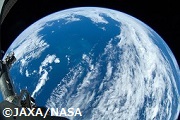| タイトル | Vitamin D: Spaceflight, Antarctic, and JSC |
| 著者(英) | Smith, Scott M.; Locke, J.; Zwart, S. R. |
| 著者所属(英) | NASA Johnson Space Center |
| 発行日 | 2009-01-01 |
| 言語 | eng |
| 内容記述 | Obtaining vitamin D is critical for space travelers because they lack ultraviolet light exposure and have an insufficient dietary supply of vitamin D. Despite the provision of vitamin D supplements to International Space Station (ISS) crewmembers, vitamin D status is consistently lower after flight than before flight, and in several crewmembers has decreased to levels considered clinically significant. Vitamin D has long been known to play a role in calcium metabolism, and more recently its non-calcitropic functions have been recognized. According to the results of several recent studies, functionally relevant measures indicate that the lower limit of serum 25-hydroxyvitamin D (a marker of vitamin D status) should be raised from the current 25 nmol/L to 80 nmol/L. The sub-optimal pre- and postflight vitamin D status is an issue that needs to be addressed, to allow NASA to better define the appropriate amount of supplemental vitamin D to serve as a countermeasure against vitamin D deficiency in astronaut crews. This is very important for long-duration crewmembers, and is critical for exploration-class missions. Ground-based models with limited sunlight exposure could be valuable for evaluating vitamin D supplementation efficacy. One such model is subjects spending the winter in Antarctica, where UV-B radiation levels are zero during the winter. Data from a study of such subjects will enable us to provide long-duration space flight crewmembers with evidence-based recommendations for vitamin D supplementation to achieve optimal vitamin D status before, during, and after flight. We report here results from a vitamin D supplementation study conducted in 2007 in Antarctica at McMurdo Station, and plans for a study to be implemented over the course of 2009. Additionally, in 2008, a study was initiated (and is ongoing) to assess efficacy and safety of supplementing with 2000 IU daily, 10,000 IU weekly, or 50,000 IU weekly for a month and then monthly after that. The data from these studies will enable us to provide space crews with evidence-based recommendations for vitamin D supplementation. The findings also have implications for other persons with limited UV light exposure, including polar workers and the elderly. |
| NASA分類 | Aerospace Medicine |
| 権利 | Copyright |
|

